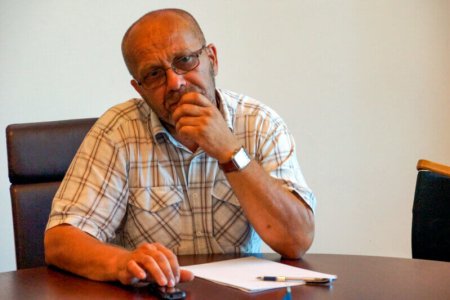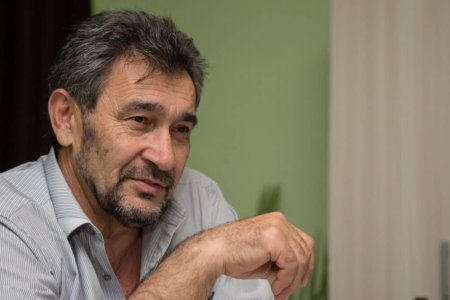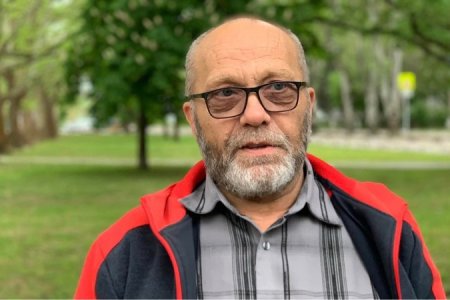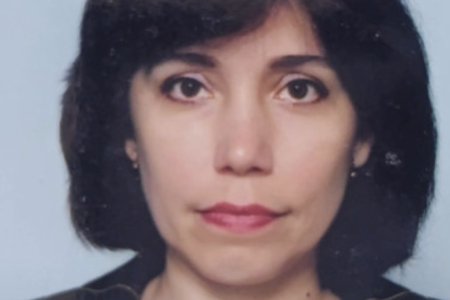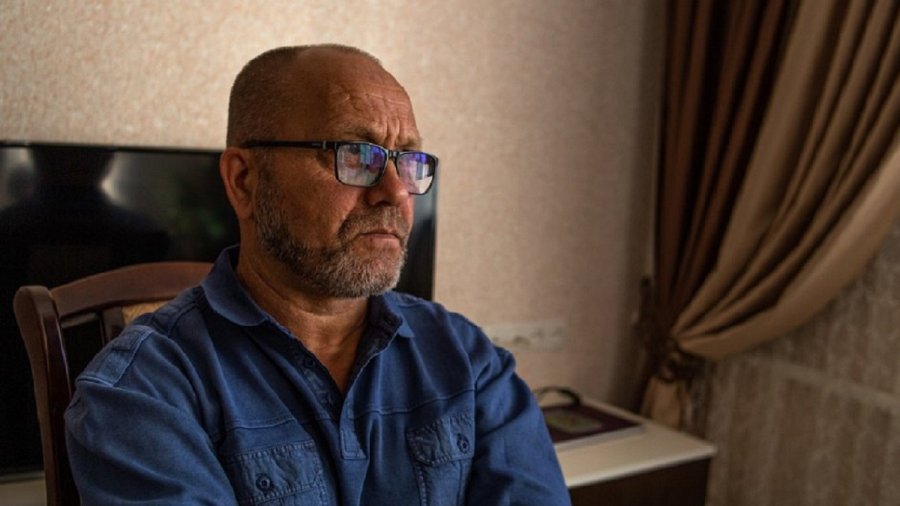
A ‘court’ in Russian-occupied Crimea has sentenced Abdureshit Dzhepparov, renowned veteran of the Crimean Tatar national movement and human rights defender, to 15 days’ imprisonment. The pretext used was a video posted on social media (of a song in which a Soviet march is compared to the Nazis). That any pretext would do need not be doubted since the Russian ‘centre for countering extremism’ officials who appeared at Dzhepparov’s Bilohirsk [Russian Belogorsk] home at 7 a.m. on 16 March also seized his nephews, Fevzi Yakubov and Mukhammed Ali Dzhepparov. Lawyers were prevented from seeing any of the men.
The cynicism of this absurd prosecution cannot be overstated. The charge brought against Dzhepparov was under Article 20.3 § 1 which is supposed to punish for ‘propaganda or the public demonstration of Nazi symbols, or those of extremist organizations’. Dzhepparov’s video, posted on Facebook in 2019, was anything but aimed at ‘propaganda of Nazi symbols’, quite the contrary, with the comparison of a Soviet march to Nazi Germany clearly unfavourable. The video was also posted well over two years ago, so any armed search in March 2022 could hardly be justified. All of this is, however, typical of the repression that Russia is using, particularly against Crimean Tatars
The ‘inspection’ (i.e. a search by another name) at 7 a.m. was led by the notorious head of the ‘anti-extremism centre’, Ruslan Shambazov and lasted three hours, with Shambazov & Co, illegally preventing lawyer Emine Avamileva from being present. Dzhepparov was then taken to a police station where his lawyer was still not allowed to see him. From there, he was taken to the Russian-controlled Belogorsk District Court where Dzhepparov explained clearly why he had posted the particular video clip over two years earlier. His aim had not been to demonstrate a Nazi symbol, but to show that the authors of the song were propagandists. This was ignored, with the ‘court’ sentencing the human rights defender to 15 days.
Abdureshit Dzheparrov was earlier active in the Crimean Tatar national movement and in the struggle for the right of the Crimean Tatars to return to their homeland (after the 1944 Deportation). Since 2014, he has experienced the worst of Russia’s repression, including their use of enforced disappearances as a weapon of terror. On 27 September 2014, his 19-year-old son, Islyam Dzhepparov was abducted, together with the young man’s 23-year-old cousin, Dzhevdet Islyamov. Despite the fact that they were forced into a dark blue Volkswagen Transporter in broad daylight, and even the vehicle’s registration number was recorded, the young men have not been seen since. The Russian FSB claimed to know nothing about their disappearance, but never made any real attempt to find them, with this only confirming the suspicion that they were behind this and other disappearances.
Dzheparrov created the Crimean Contact Group for Human Rights, which has tried to find those abducted. He has repeatedly received visitations with the occupation enforcement bodies handing him ‘warnings’ about the inadmissibility of so-called extremist activities, and has also been detained several times at the administrative border between mainland Ukraine and occupied Crimea.
Ukrainian human rights NGOs condemned Dzhepparov’s imprisonment as part of Russia’s large-scale persecution of Crimean human rights defenders. They point out that Dzhepparov was nominated for the Nobel Peace Prize in 2020 and received a state honour from Ukraine’s President in 2021.
The same ‘court’ later sentenced 40-year-old Fevzi Yakubov to 10 days’ imprisonment, supposedly for ‘disobeying the legal order of a police officer’ (Article 19.3 of Russia’s Code of administrative offences). Even Yakubov’s lawyer, and journalists, were prevented from being present in ‘court’. A similar ‘court’ farce has been scheduled on 17 March with respect to Mukhammed Ali Dzhepparov.
